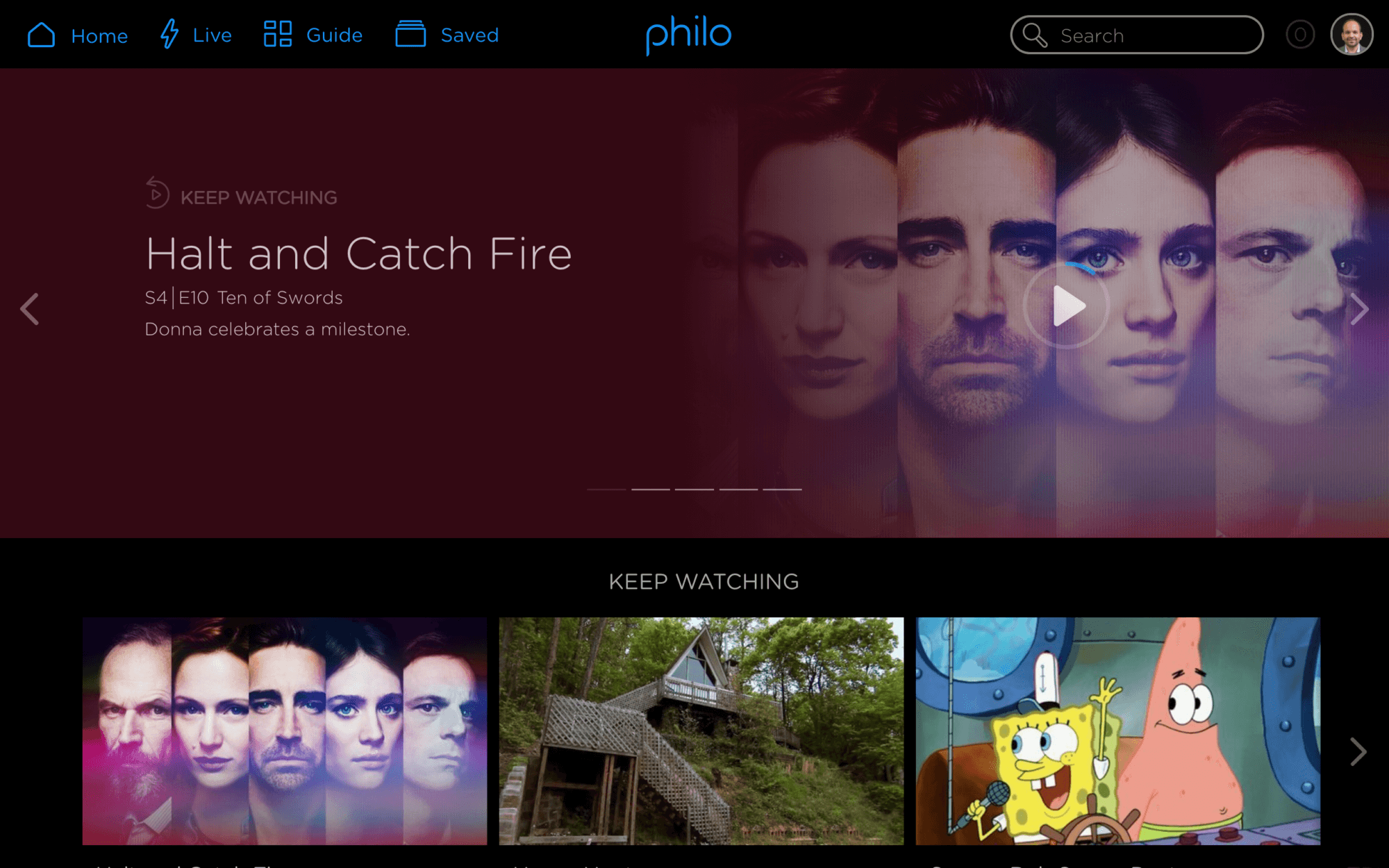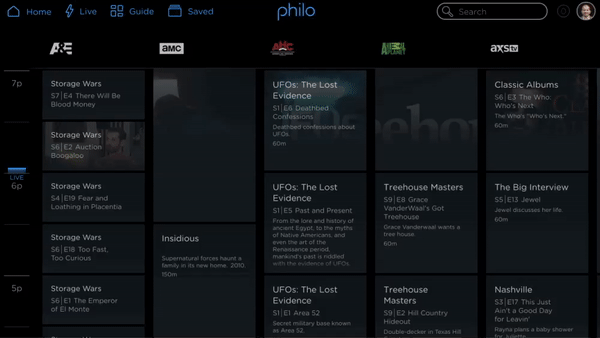
“Cord cutters,” a.k.a. people who give up cable television for streaming services, are becoming increasingly common, especially among younger audiences. Digital television platforms such as Netflix and Hulu have been steadily growing to bring viewers content on practically any device, making it challenging for new services to enter the space. But the new digital TV service Philo—named after Philo Farnsworth, the founder of the all-electronic television—is taking up the task by not competing.
Philo launched its mainstream business in November, giving audiences access to channels and shows while connecting through an integrated social platform. But instead of positioning itself as a competitor to services like Hulu, the live TV streaming and DVR service is presenting itself as a complementary subscription.
“People love TV, but they don’t love the ways to watch TV,” Philo CEO Andrew McCollum, formerly a founding member of Facebook, told AListDaily. “If you use Philo and combine it with Netflix or other streaming services or a digital antenna, you can build your own content packages.”
Philo started six years ago, catering to the college market while it refined its technology and established relationships with content providers. The company is now entering the mainstream market with partners that include Viacom, AMC, A&E, Discovery and others, who have collectively given Philo a strategic investment of $25 million along with access to their channels.
College students are satisfied with the service, according to McCollum, who cited a survey that says of over 2,000 students, 90 percent indicated that they wanted to take Philo with them. The company is developing opportunities to migrate this existing audience over to the mainstream service. In the meantime, Philo is investing heavily in PR, social and word-of-mouth marketing before it considers a deeper marketing spend.
A considerable part of the word-of-mouth approach is likely tied into the service’s social features, as McCollum’s interest in bringing social design to products still remains from his time at Facebook. Viewers can recommend the shows that they’re watching to others, even if they’re not signed up with Philo yet. In those instances, the recommendation comes with an invitation to start a free trial. Once in, can immediately jump into the show and check out what their friends are watching. There are also some features for synchronized viewing experiences.
Philo differentiates itself from live TV services such as PlayStation Vue by not including broadcast network or sports channels that other subscriptions have, according to McCollum, thereby removing the high premium that comes with them.
“We wanted to create a different choice in the market with more flexibility in building the content they care about,” McCollum said. “Most of the other services have broadcast and sports-focused packages. We’ve tried to differentiate on the package side by offering entertainment, lifestyle and knowledge channels. We’re also differentiating by price and we’ve tried to innovate on product by making it easy to use with a social dimension added to the experience.”

Philo has no plans to compete with platforms such as Hulu or Netflix through original content, nor does the service offer access to premium channels such as HBO, but McCollum said that they’re currently in talks to have the latter added. For now, he’s comfortable with the idea of audiences using Philo to supplement other streaming platforms such as Amazon Prime Video, which do offer these types of content.
“Some of these services aren’t really competitive to us—they’re largely complementary—so you can sign up for more than one,” McCollum said.

